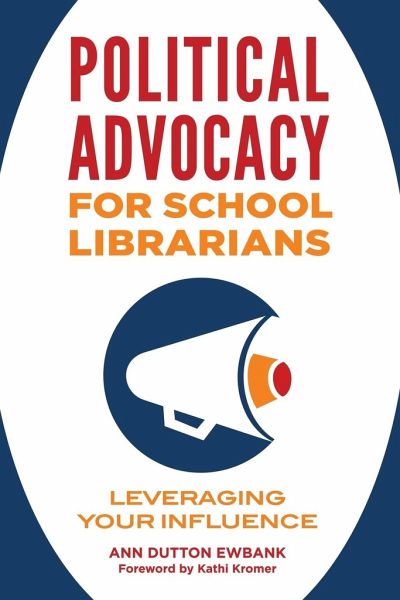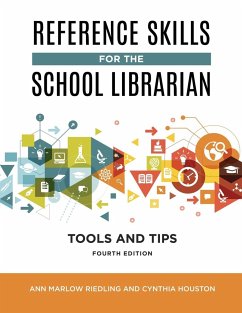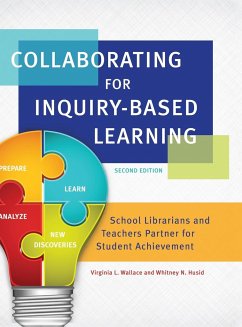
Political Advocacy for School Librarians
Leveraging Your Influence
Versandkostenfrei!
Versandfertig in 1-2 Wochen
44,99 €
inkl. MwSt.
Weitere Ausgaben:

PAYBACK Punkte
22 °P sammeln!
School librarians are prepared to be leaders and can use their strengths to advocate for policy that benefits school libraries. This book will teach you how to engage elected officials to effect change that extends to your library. Education and information policy has a direct impact on school libraries and is shaped by decisions at the local, state, and federal levels. School librarians are positioned uniquely to leverage their inside knowledge of effective school library programs to make a difference in education through civic engagement; however, a thorough understanding of both the explici...
School librarians are prepared to be leaders and can use their strengths to advocate for policy that benefits school libraries. This book will teach you how to engage elected officials to effect change that extends to your library. Education and information policy has a direct impact on school libraries and is shaped by decisions at the local, state, and federal levels. School librarians are positioned uniquely to leverage their inside knowledge of effective school library programs to make a difference in education through civic engagement; however, a thorough understanding of both the explicit and "hidden" rules of government is necessary to be an effective advocate. This compact book serves as a guide to advocating for effective programs, filling a gap in the practitioner literature regarding the policies that affect school library programs. Drawing on research-based best practices and the author's experience as the chairman of the ALA Legislation Committee and in political advocacy, this book explains the political process through concrete examples of both success and failure and analyzes these examples to show how librarians can move education policy in a positive direction.













